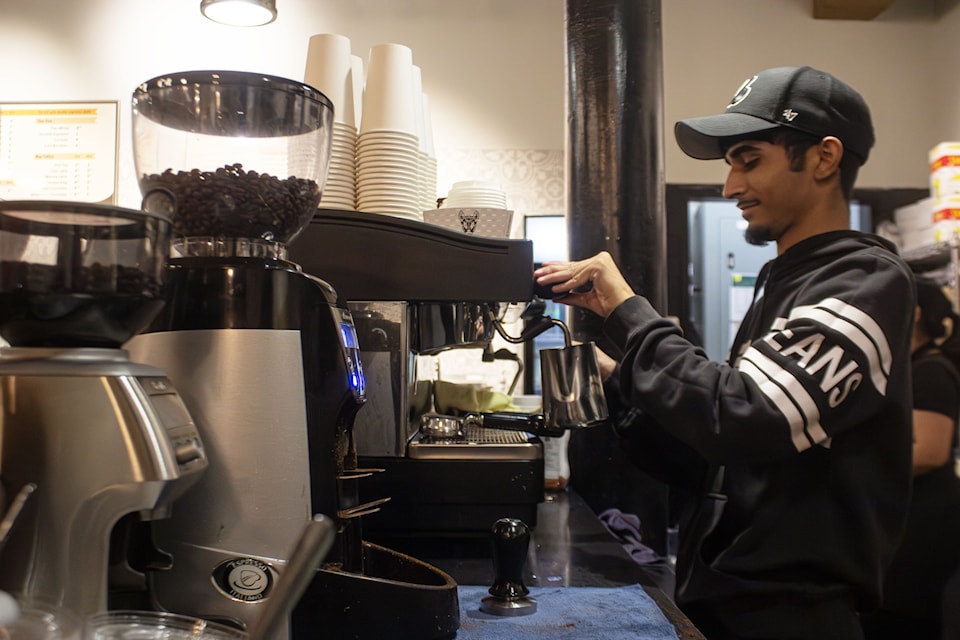Rising temperatures and erratic weather are shrinking coffee-growing areas worldwide, reducing its production and increasing prices, with major implications for farmers and consumers.
Yields all over the world are expected to decrease due to climate change and the area of coffee cultivation is likely to reduce in size, according to the Intergovernmental Panel on Climate Change (IPCC), a United Nations organization assessing climate change.
Coffea arabica and Coffea canephora (robusta) species that account for 60 per cent and 40 per cent of the global coffee trade, respectively, are facing growing threats from climate change, the IPCC said.
Brazil experienced severe drought in 2021 followed by the frost, which significantly affected the coffee crops and led to a 45 per cent spike in global coffee prices between May and November of that year, the UN organization reported.
Brazil, produces about 40 per cent of the world’s coffee and is facing the worst drought in a century, the UN report said.
Many North Americans may not realize coffee is becoming more expensive, but with roasted or ground coffee prices rising 9.2 per cent in August 2023 compared to last year, they could soon see higher prices at popular chains like Tim Hortons and Starbucks, according to Statistics Canada.
The dry conditions have particularly affected Brazil’s coffee-growing regions, particularly in Minas Gerais and Sao Paulo, where the most popular variety of coffee, Arabica beans, are grown, the IPCC said.
“The main issue is either drought or heavy rainfalls that affect the growth and flowering periods of coffee trees,” said Sven Anders, professor of research economics and environmental sociology at the University of Alberta.
“The flowering stage is very sensitive, and these weather events reduce the amount of coffee beans produced,” Anders said.
The National Institute of Meteorology of Brazil reported, that those areas have received rainfall 60 per cent below the average in the past months, which has affected the coffee trees, putting the product in scarcity.
The situation is also grim in Vietnam, which is the world’s largest producer of Robusta, an ingredient for instant coffee and espresso.
The Intergovernmental Panel on Climate Change estimates that by 2050, there could be a significant loss of land suited to coffee forcing coffee production into higher altitudes. The UN Food and Agriculture Organization (FAO) has emphasized the significant risks climate change has created to coffee production, especially in developing nations where coffee is the main source of livelihood.
Lidya Farag, executive assistant of Coffee Association of Canada, said in an email to Humber Et Cetera, that climate change is causing unpredictable weather patterns including higher temperatures, extended droughts and excessive rainfall in coffee-producing regions like Central and South America, Africa and Asia.
Farag said rising coffee prices in Canada can be partly attributed to climate change.
Factors such as crop losses, higher production costs as farmers move to climate-resilient crops or investments, and logistics challenges contribute to increased costs for importers, which are passed on to consumers, she said.
“Erratic weather patterns, such as prolonged droughts or excessive rainfall, are leading to lower yields in key producing regions like Brazil, Colombia, and Ethiopia,” Farag said.
Sustainability is a significant trend among Canadian consumers where coffee awareness about its environmental and ethical impact is fast emerging, and customers are more than ready to pay more for their product to protect sustainable practices and help farmers through climate change, she said.
"The Coffee Association of Canada is promoting sustainable coffee sourcing by supporting global certification programs like Fairtrade and Rainforest Alliance,” Farag said. “These efforts focus on reducing environmental impact, improving water management, and ensuring fair working conditions for farmers."
According to the Stockholm Environment Institute (SEI), an international non-profit research institute, climate change could reduce the production of arabica coffee by 45.2 per cent and robusta coffee production by 23.5 per cent globally.
Joel Shaji, who sipped a coffee at Cafe 23 on Queen Street West near Niagara Street, is unfazed by the expected price increases.
"I don't think I would stop drinking coffee because of an increase in prices... I will spend more money to support my addiction to coffee,” Shaji said. “I didn't really know about how climate change is affecting coffee production before you mentioned it," he said.
Global coffee production will decrease due to climate change and farmers leaving the sector if significant strides in sustainability are not improved, Anders said.




